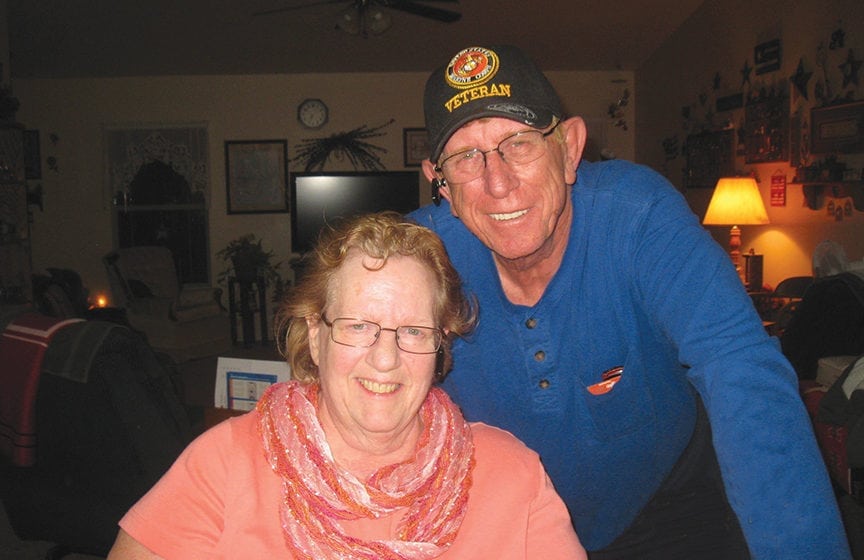Ontario, Canada, lifelong complications due to Stickler syndrome eventually resulted in bilateral Syme amputations, in which portions of his feet were removed, leaving only the heels. After his surgery in January 2015, Shea did not receive his final prostheses until November 2016, nearly two years post-amputation. Shea believes depression and self-consciousness played a role in the termination of a budding relationship during the time surrounding his amputation.
“At first, she was very supportive, but as time went on, there was some distancing between the two of us, but it was not solely because of the amputations,” he says. “There were some other issues, which led to us breaking up not long after. But I have always felt like there was a bit of a problem when I would talk about my amputations, because she never knew what to say or how to respond when I was having an amputee-related crisis; however, I do not blame her. I was severely depressed after the procedure and was hard to deal with.”
There would be additional disappointments along the way for Shea before a connection through Facebook blossomed into a relationship that has since turned things around for him.
Initially afraid of rejection, Shea chose to disclose his disability early on and, through candid dialogue, discovered that his new friend, Danielle Carroll, also suffered from chronic pain. Understanding each other’s experiences with chronic pain and its resulting physical limitations strengthened their emotional relationship, reduced the focus on sexual intimacy, and allowed the two plenty of time to nurture their bond.
“She really did save me,” says Shea. “After I broke up with the previous girl, it just left me truly alone and made me think I was never going to find someone again. But Danielle has pushed me to go above and beyond. And she’s helped me start to see myself in a normal way, as in, ‘Okay, I might have prosthetics, but that doesn’t change who I am….’ We, as amputees, are not damaged. We are not worthless. We are humans. We deserve a shot at a life, at love, everything. Our amputations will not hinder that. And if someone makes you feel like you are damaged, like you do not deserve love, then they do not deserve you in their [life].”
What if you happen to have more than a few years behind you? Finding love can be tough, and for those brave enough to tackle internet dating, using a site can be discouraging. Although there has been a recent proliferation of disability dating sites, some amputees choose to register themselves on sites not dedicated to those who have a disability.
Marshall Deitch, 75, of Chicago, lost his leg above the knee due to surgical failure. “The bottom line is the loneliness when you’re an older widower and amputee,” says Deitch. “I really feel a woman looks at the true fact that I am an amputee—that it is an automatic ‘don’t contact this guy because he is not like the others to choose from’ [on a dating site]…. I feel this is a chronic condition for all that seek a mate, woman or man, if you use a site like POF [Plenty of Fish] or eHarmony.”
For Arizona resident Monica Vickers, there were no dating sites. Born missing two legs and one arm, finding love was a mixed bag. Using prostheses into her early 20s, Vickers eventually switched to using an electric wheelchair. It allowed her greater mobility, greater independence, and made carrying groceries less difficult.
It was at a dinner dance for Amputees In Motion that she met Mike. A volunteer driver for the club, he asked to join her table, and before long they were engaged in conversation. Trips to theme parks, cooking, and enjoying movies were just a few interests the two shared; however, the relationship soon came under scrutiny from their families.
Mike was unprepared for the extremely negative reaction of his family. Their response raised concern that the relationship would also trigger doubts in his employer’s mind about his ability to make sound choices, so he began to withdraw, leaving Vickers devastated. Mike ended his relationship with Vickers, resulting in a break in contact lasting several years, during which he married another woman. One day a chance phone call and subsequent visit reunited the two, confirming in Vickers’ mind what she knew all along—that they had shared a true connection. After Vickers made it clear that she would not begin a relationship as long as he was still married, it was another 18 months before Mike returned, divorce papers in hand. Several years after that, he proposed to Vickers.

Even though the relationship had a bumpy start, she accepted the proposal, and the two have now been married for 27 years.
Still, how do we learn to love ourselves? In an able-bodied world, where we are bombarded with Photoshopped perfection every day (just peruse the magazine stand at any grocery store), how do we accept our perceived imperfections?
Then there are the myths surrounding those with limb differences:
“She won’t be able to raise a family properly.” Being an amputee does not mean that a woman cannot bear and raise children. Teaching children good values is not connected to whether their mother is missing a limb. Exposing children to prostheses, mobility aids, and methods of performing tasks that are different from what is considered normal can foster understanding and tolerance of others around them who may be struggling with unconventional life challenges.
“He’s in a wheelchair. He can’t have sex.” The fact is, being an amputee and choosing to get around using a mobility aid has nothing significant to do with the ability to have intimate relations.
Whether you were in a committed relationship when your amputation occurred or are new to the dating scene post-surgery, it’s important to focus on who you are on the inside. Candid communication, demonstrating a positive attitude, and showing you appreciate your partner’s help and support goes a long way toward highlighting the reasons he or she fell in love with you in the first place—the YOU.
Doing the math by adding the sum of all your parts—limbs, attitude, and heart—can equal love in all the right places.

Use a recent photograph as your profile picture. Change it often. It may reduce the chances of someone scrolling past it because they’ve seen it before. Use a photo that demonstrates an activity you do as an amputee. If you play golf, show a picture of yourself on the greens.
Be candid about your abilities. Focus on what you can do. If you climb into a canoe more easily from the shore than a dock, say so. This demonstrates your ability to adapt to continue staying active.
Be a “triumphant survivor.” Avoid a “poor me” attitude. Highlight your resiliency—your ability to shine through dark times—your appreciation for life. Enthusiasm can be infectious!



